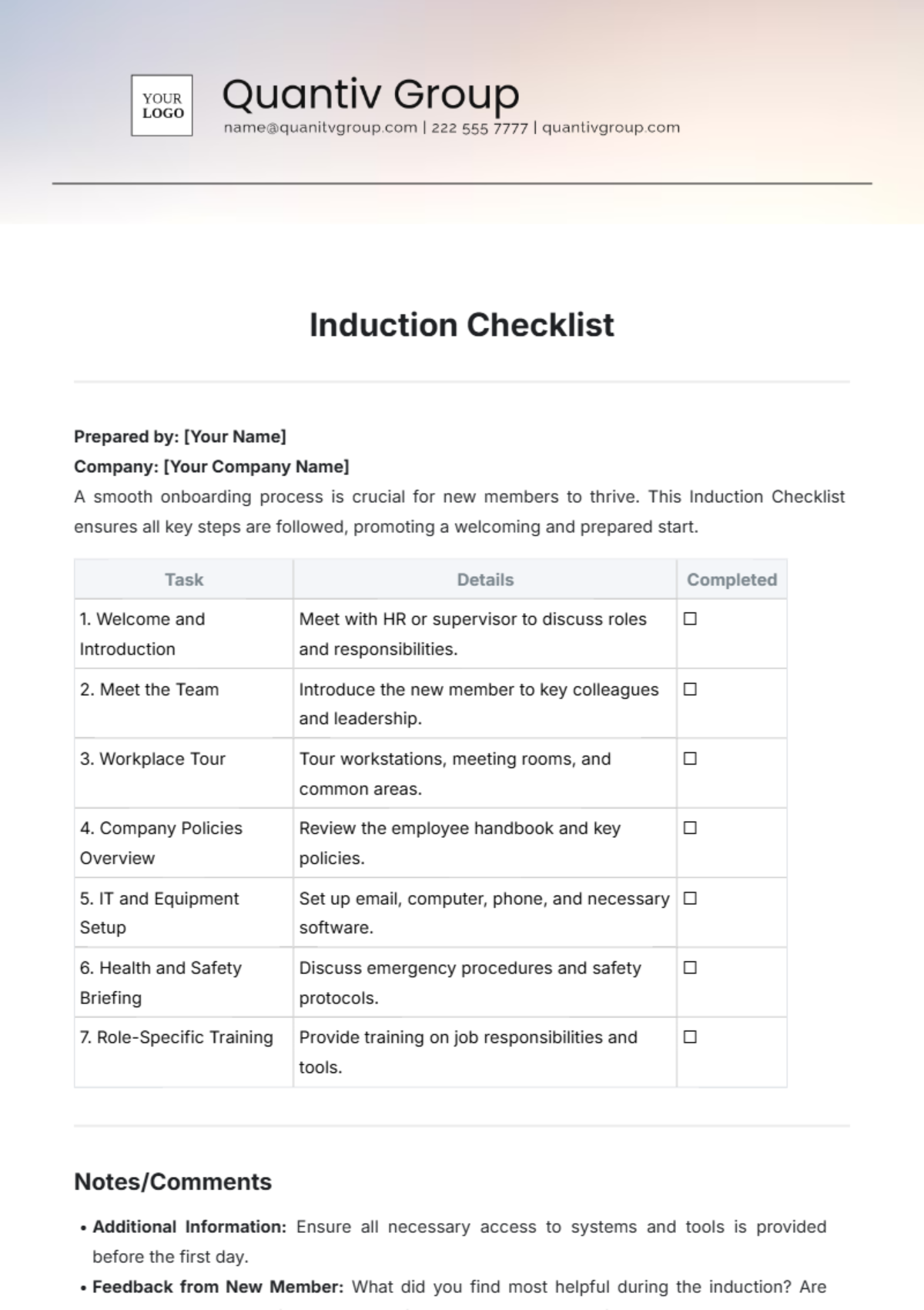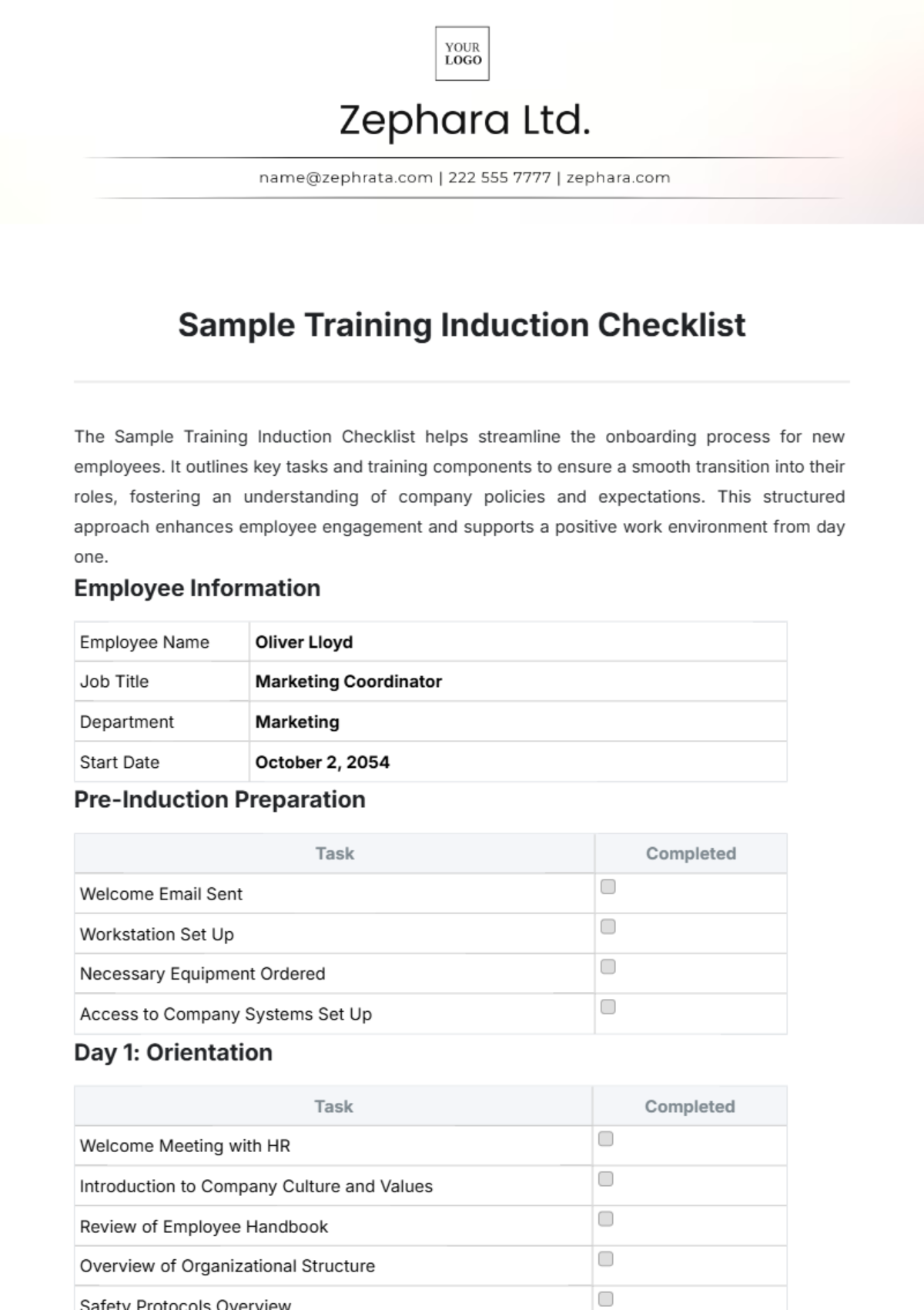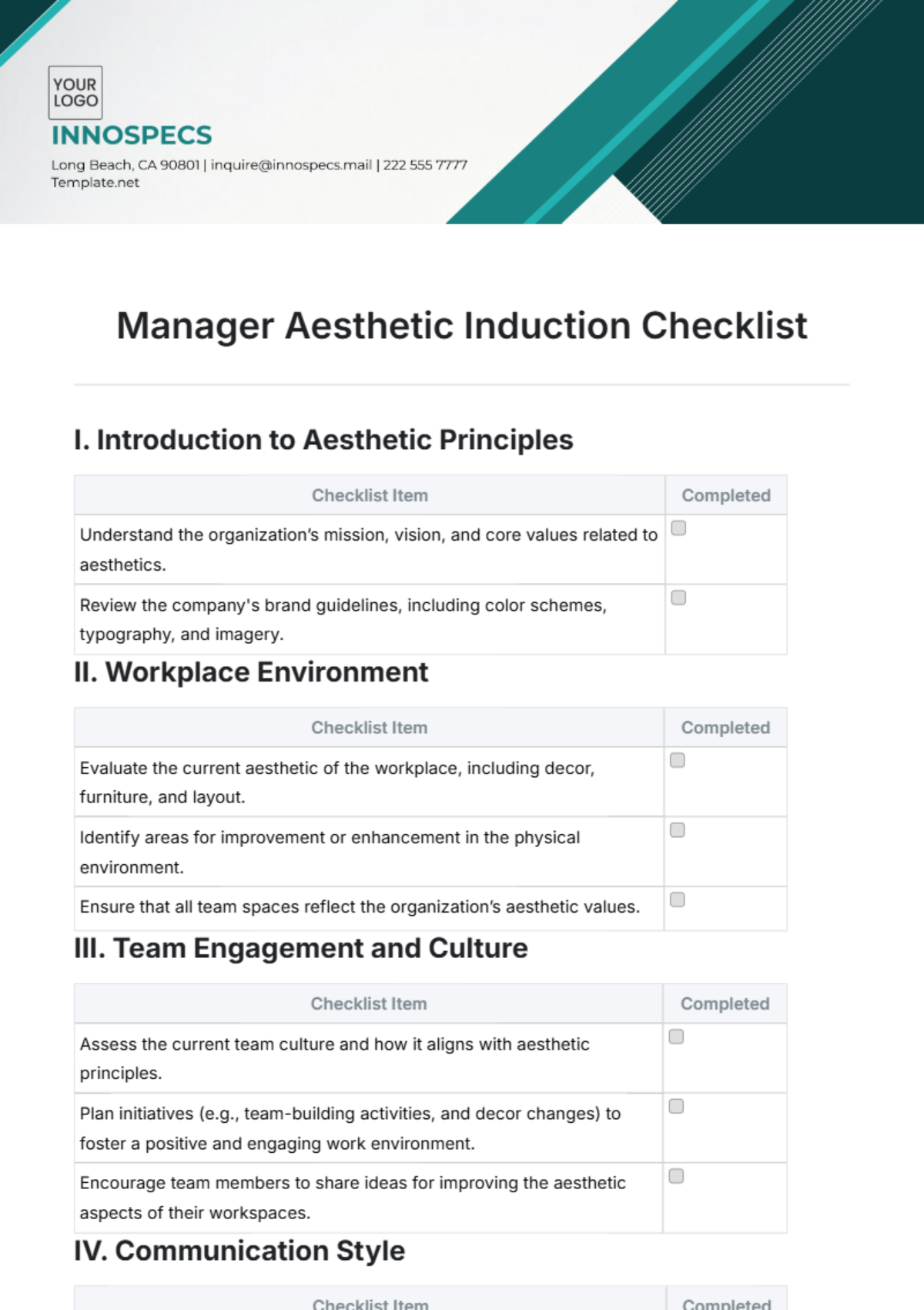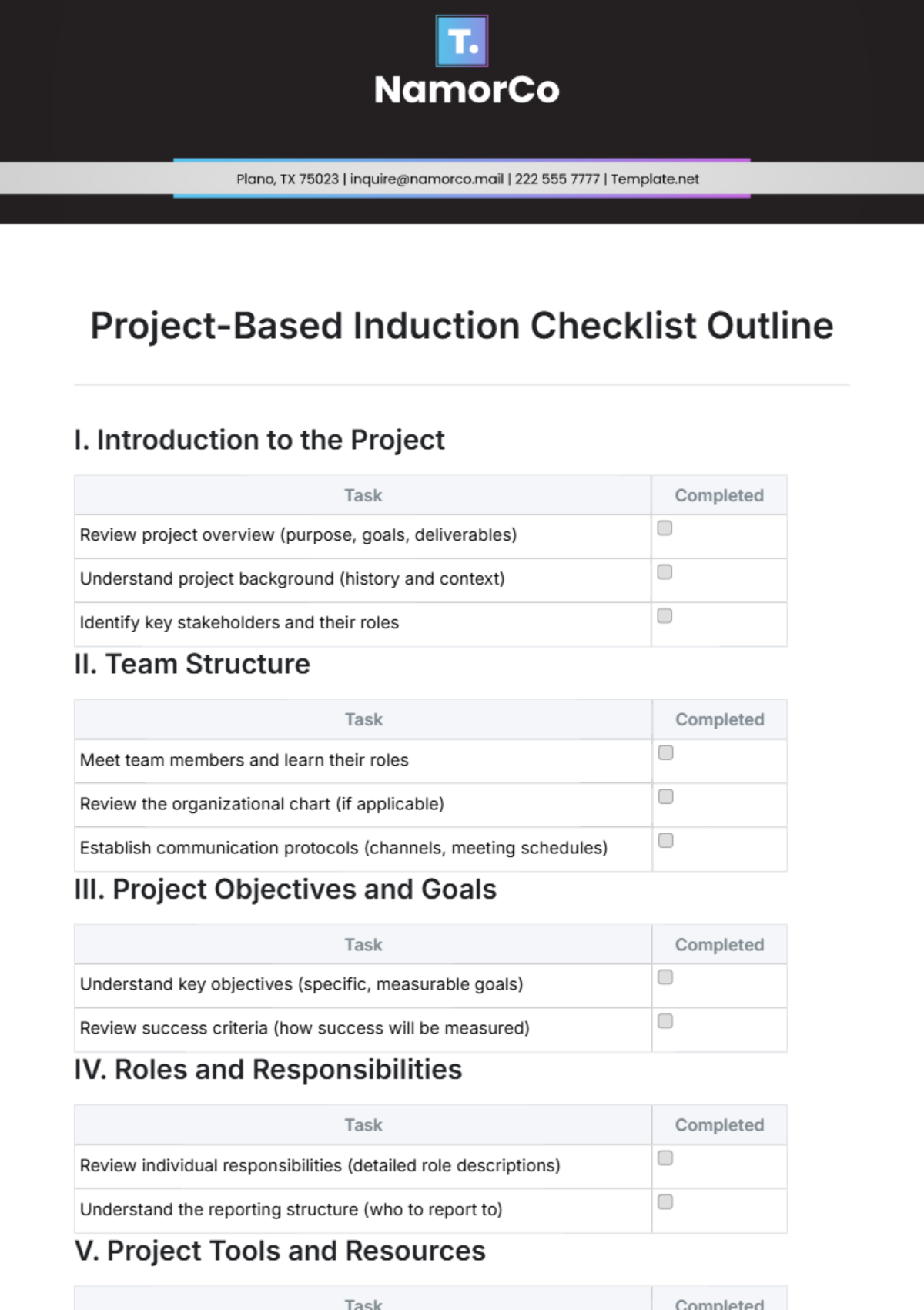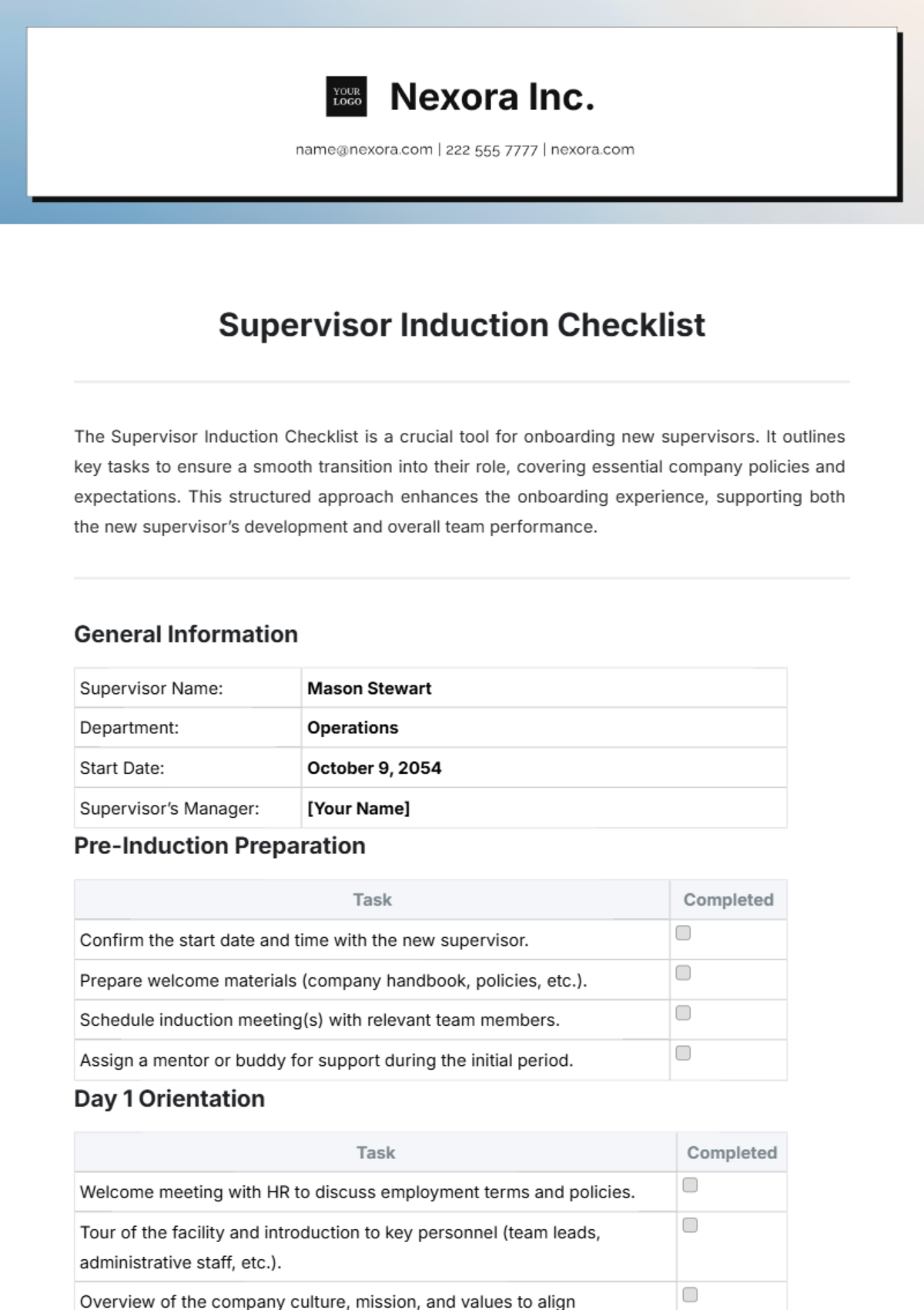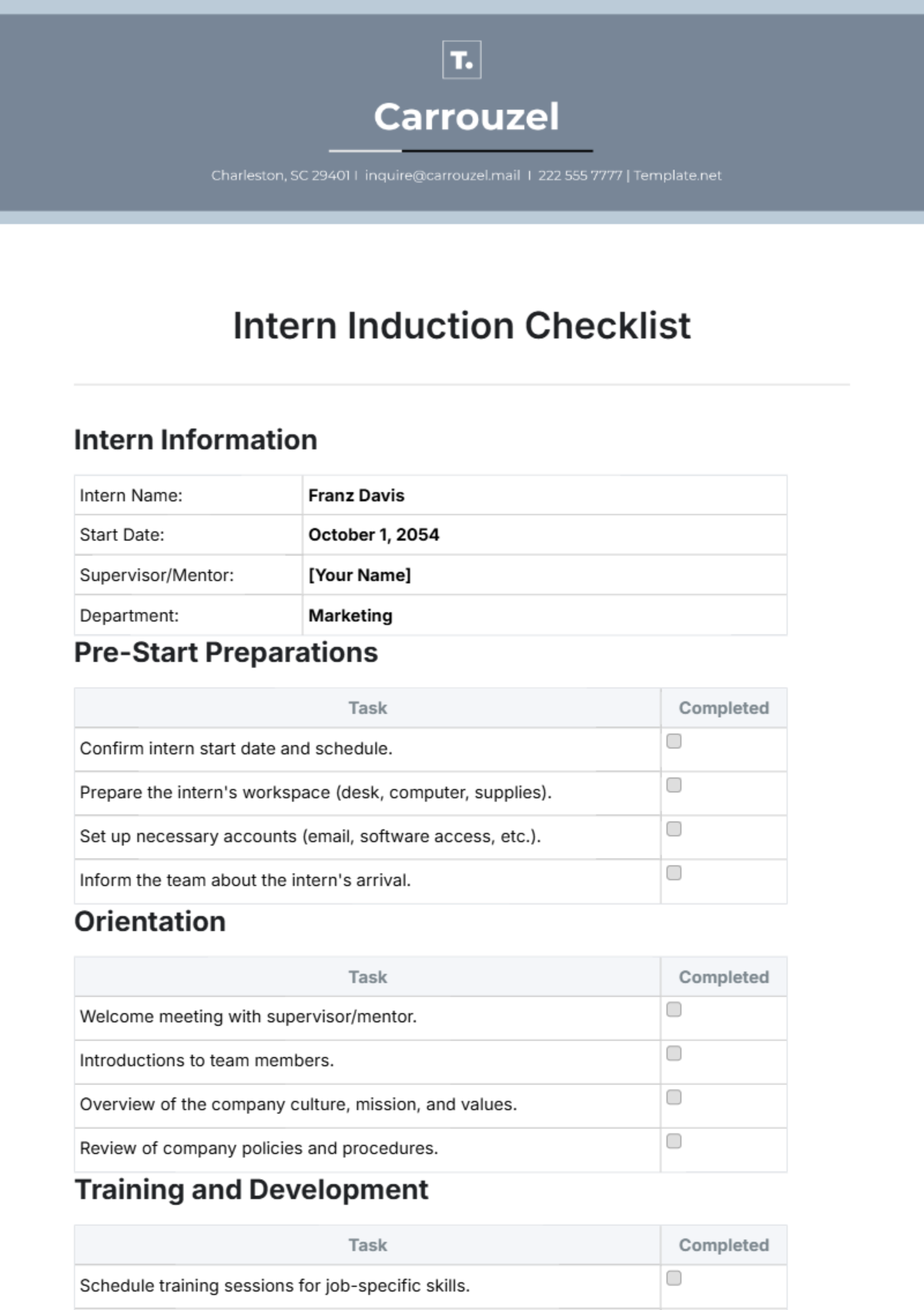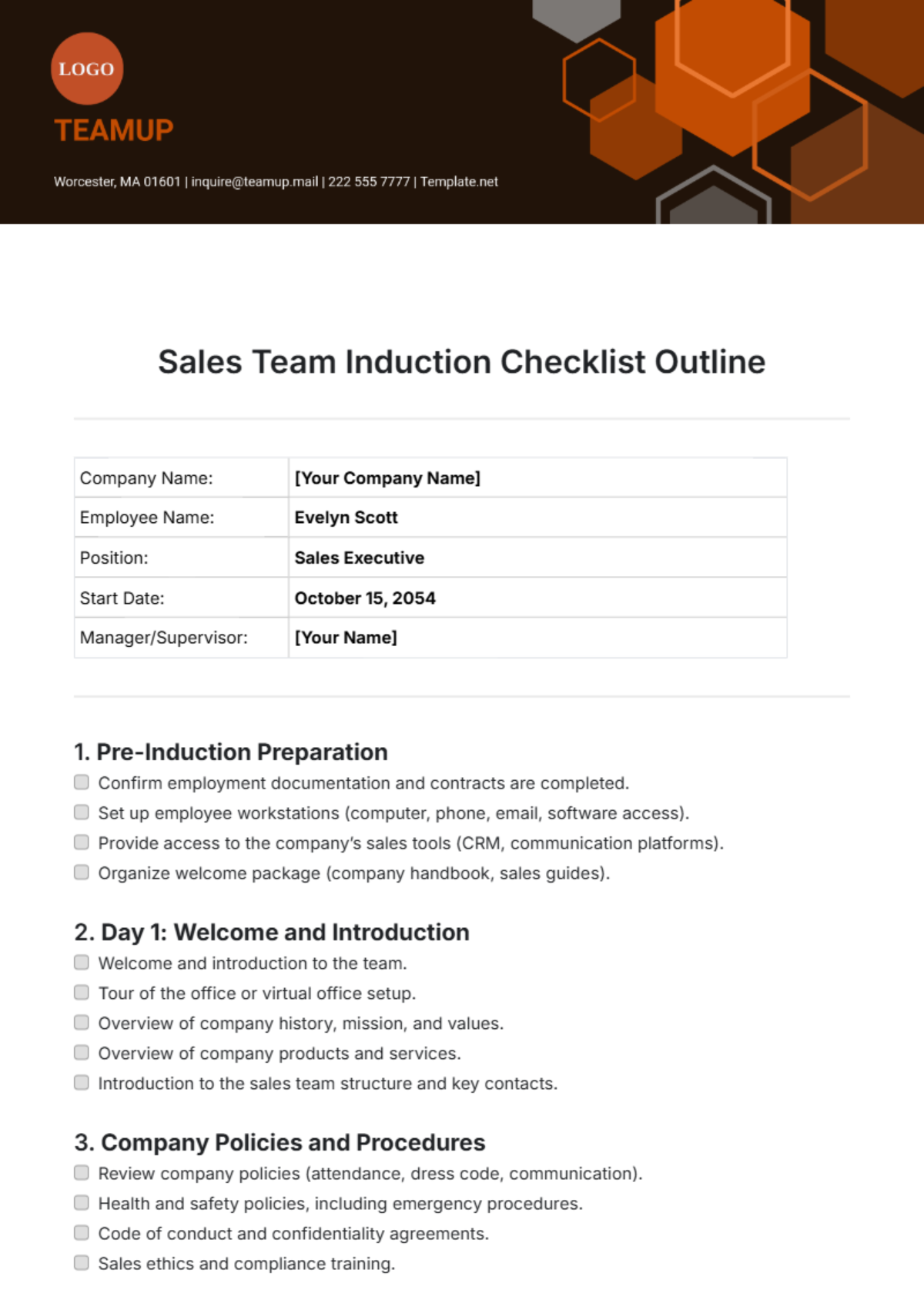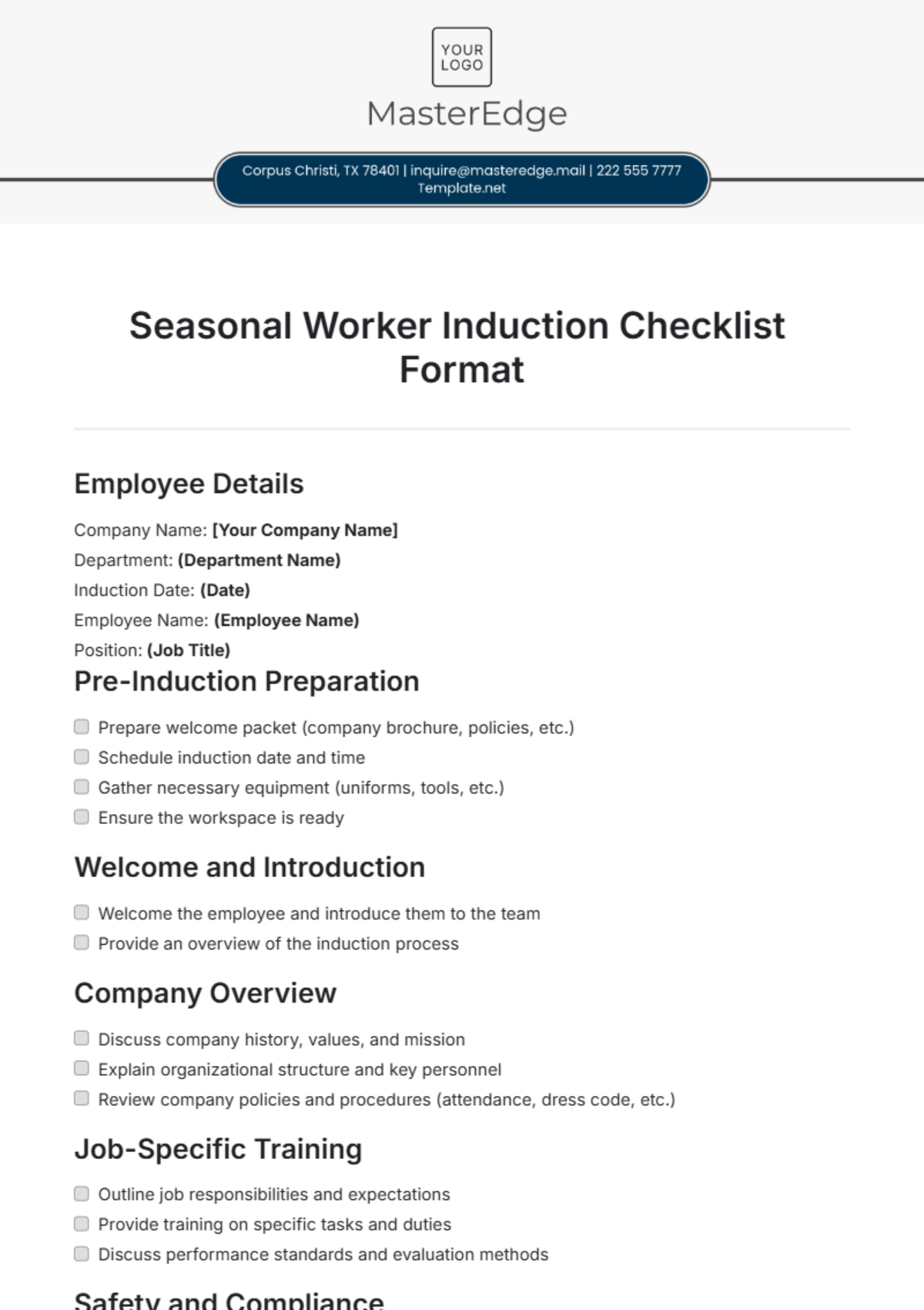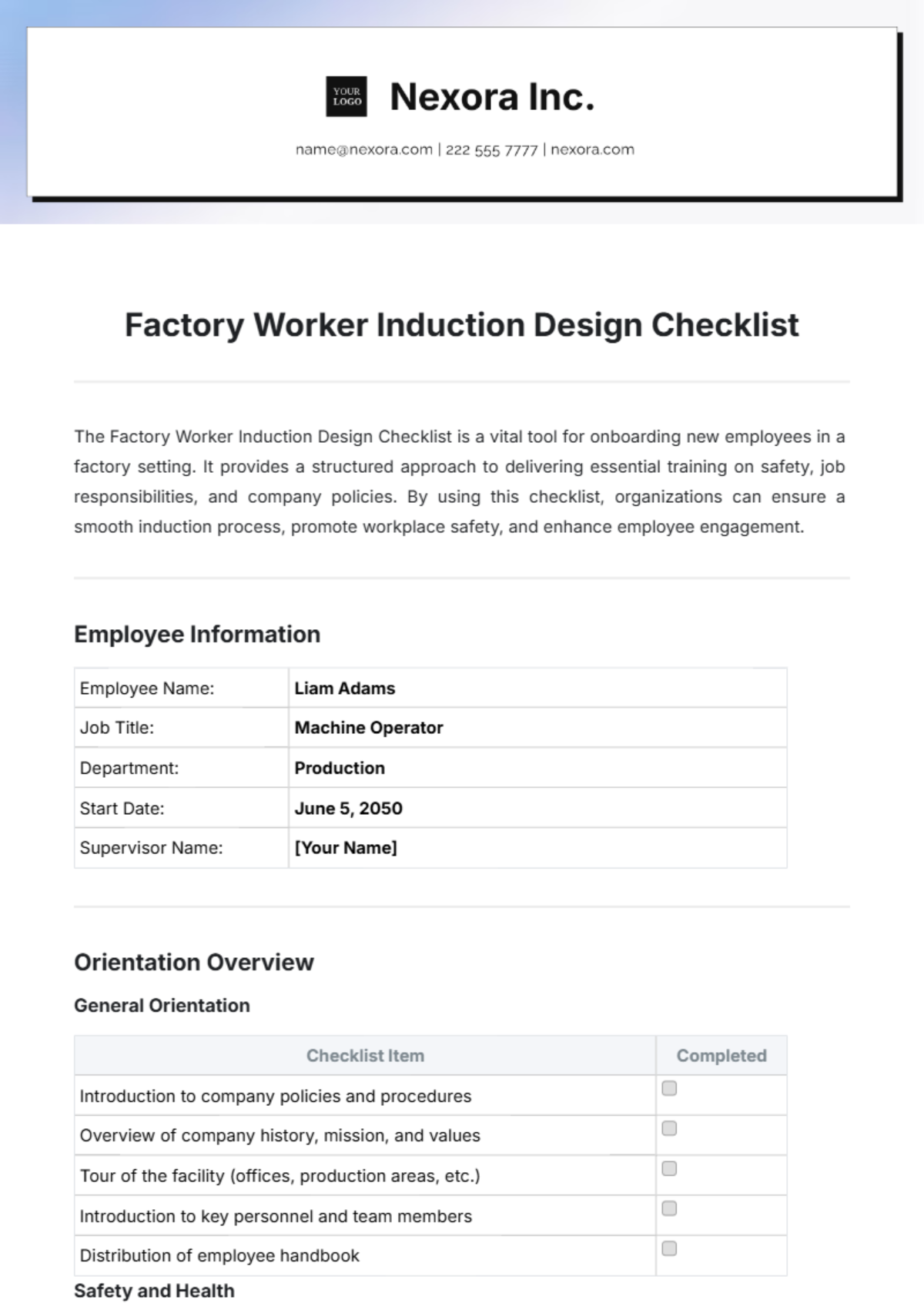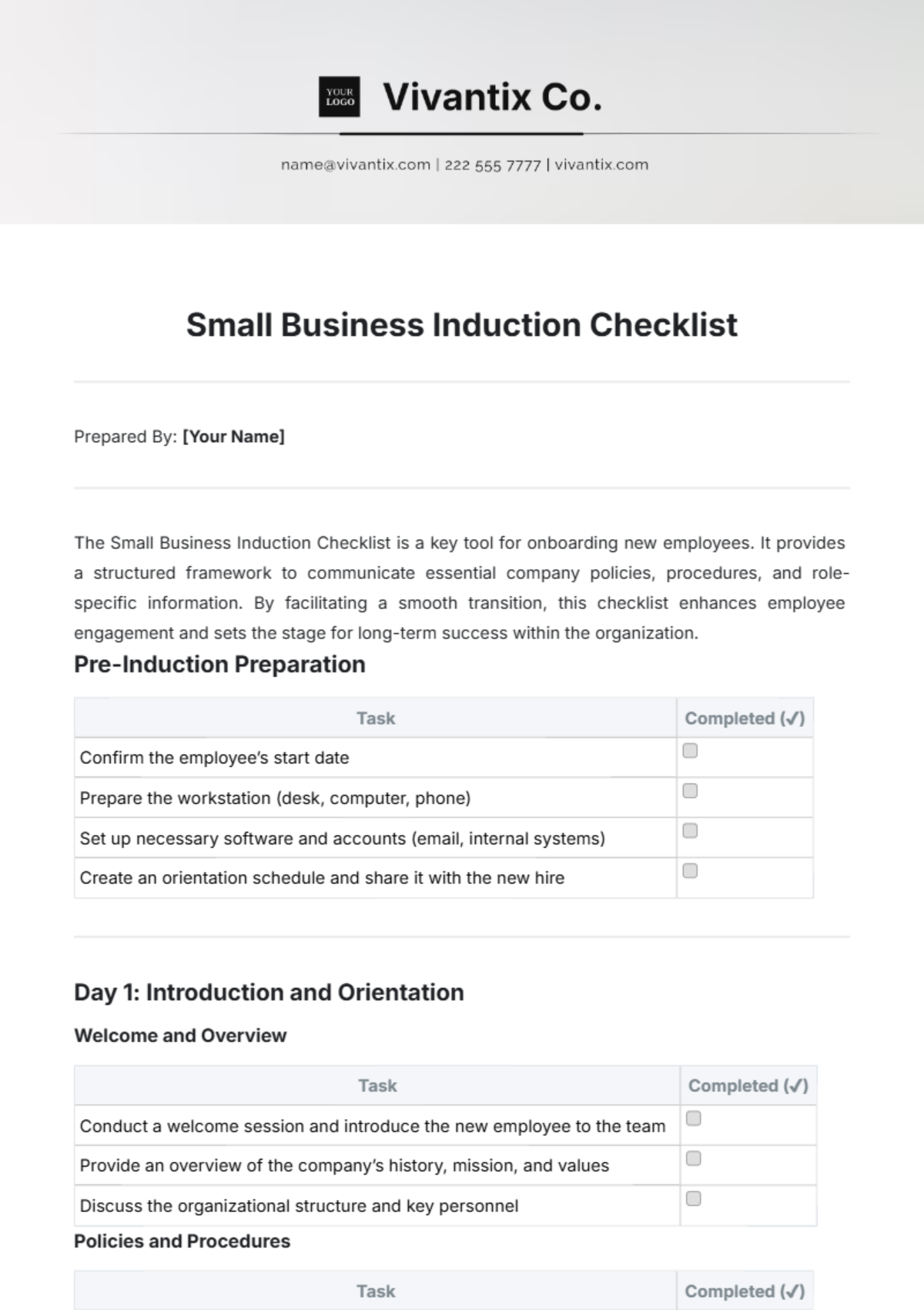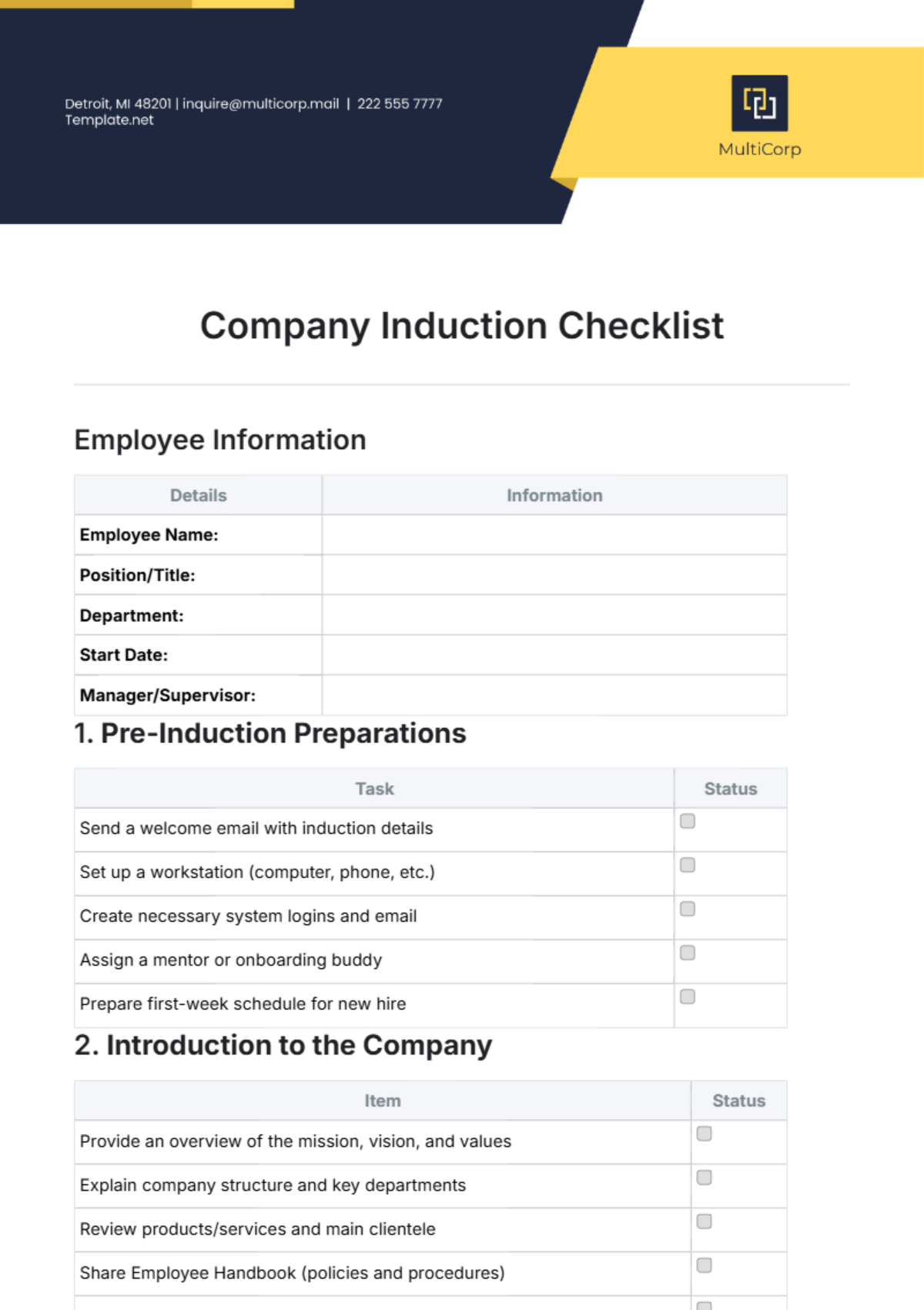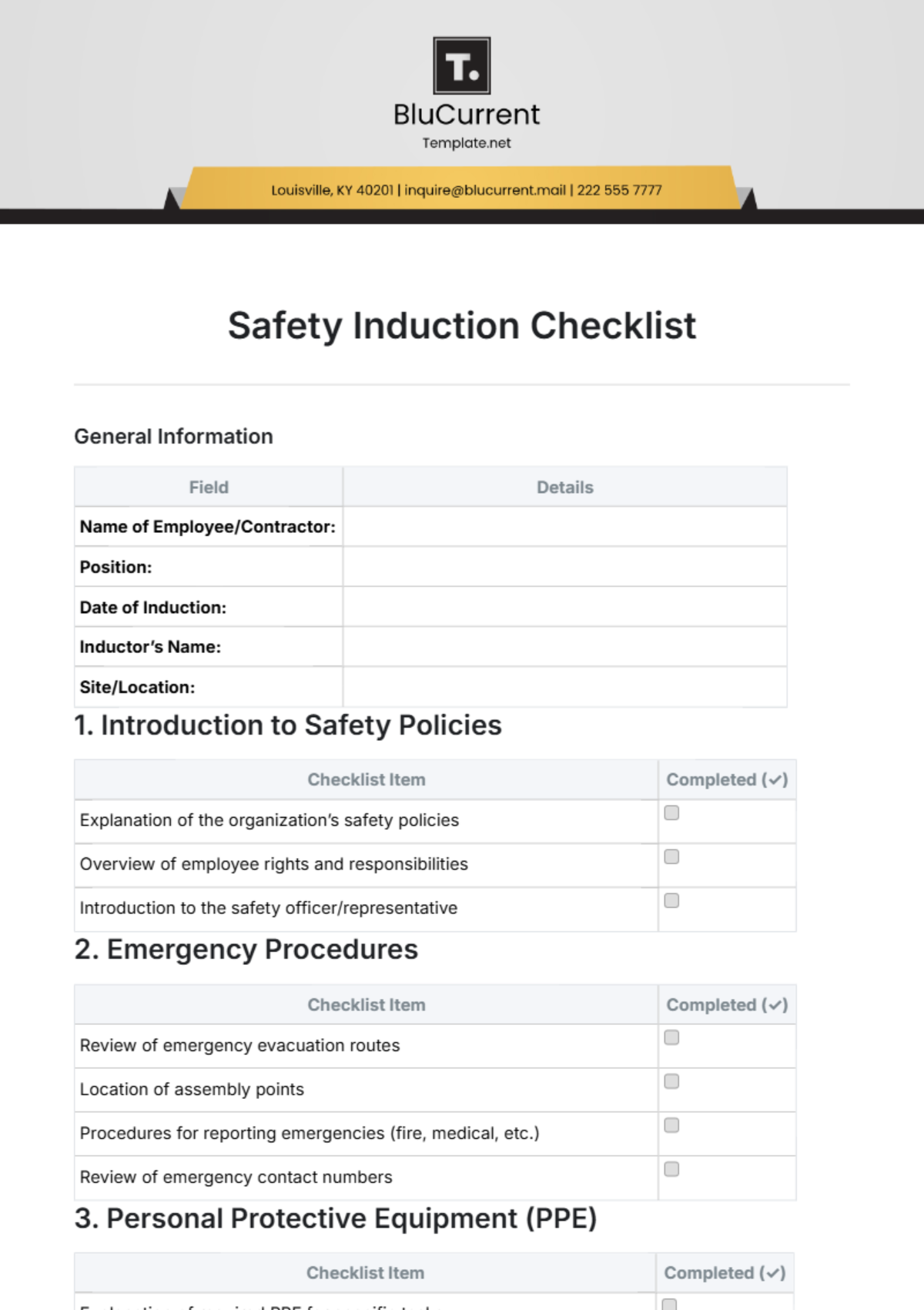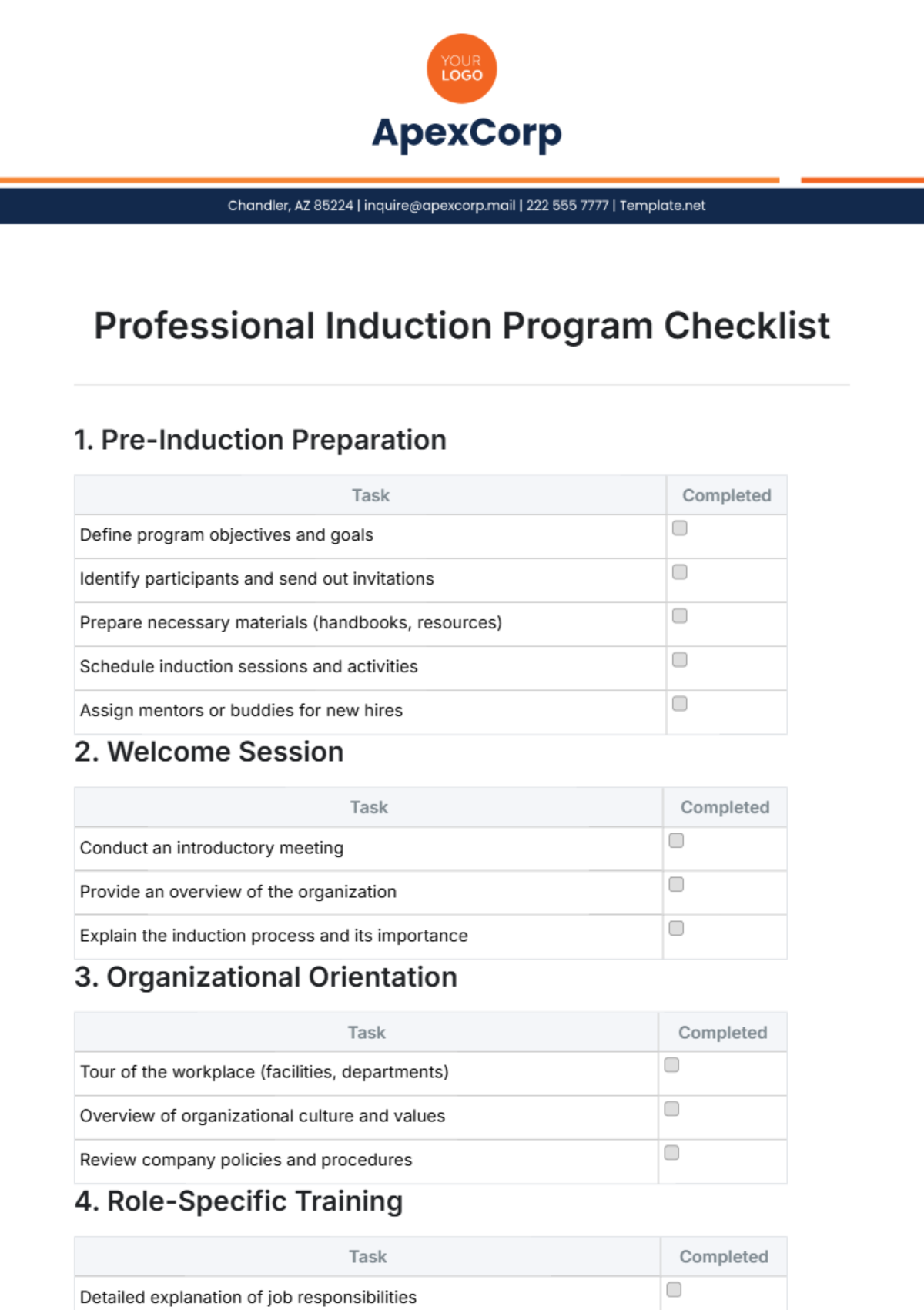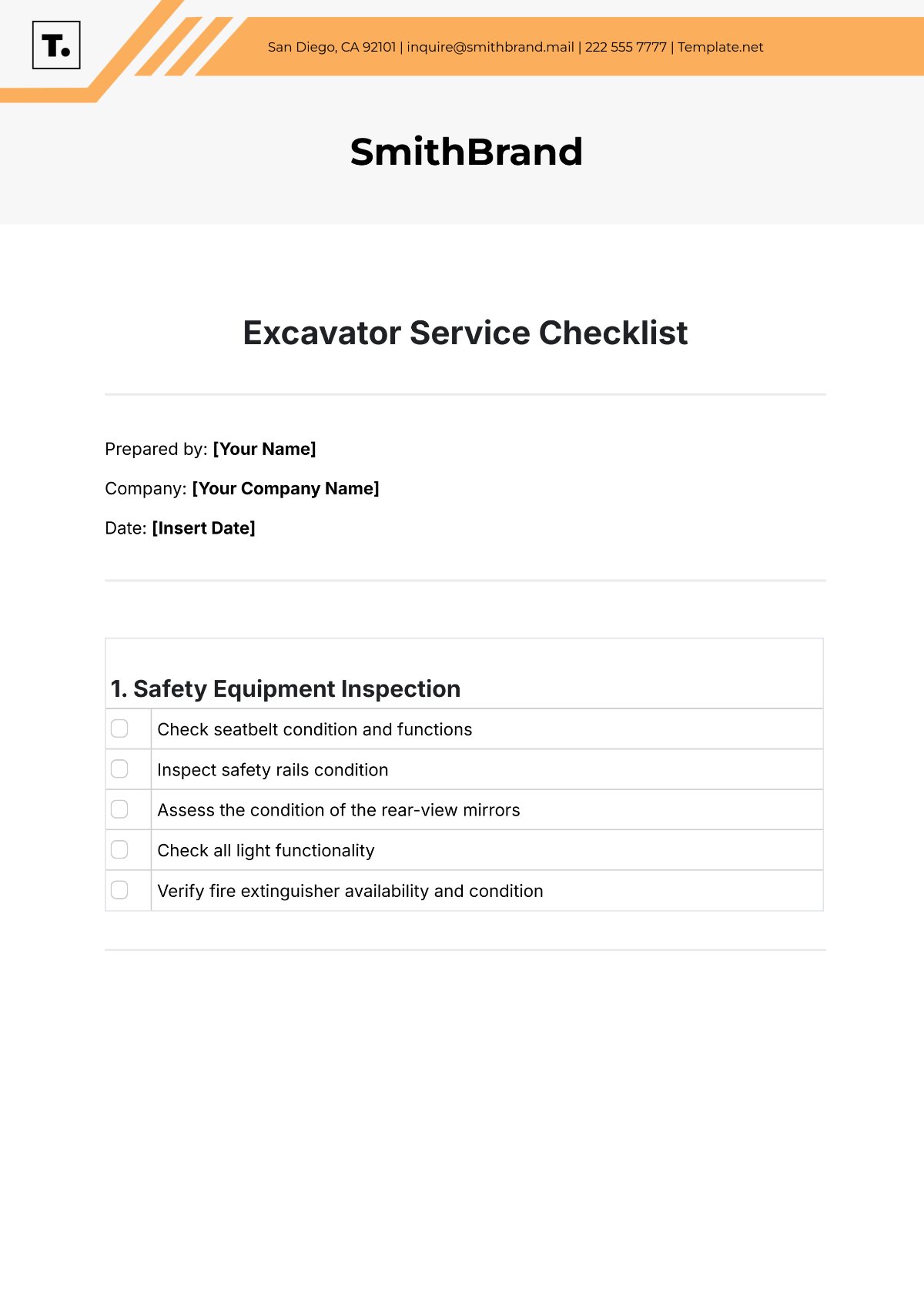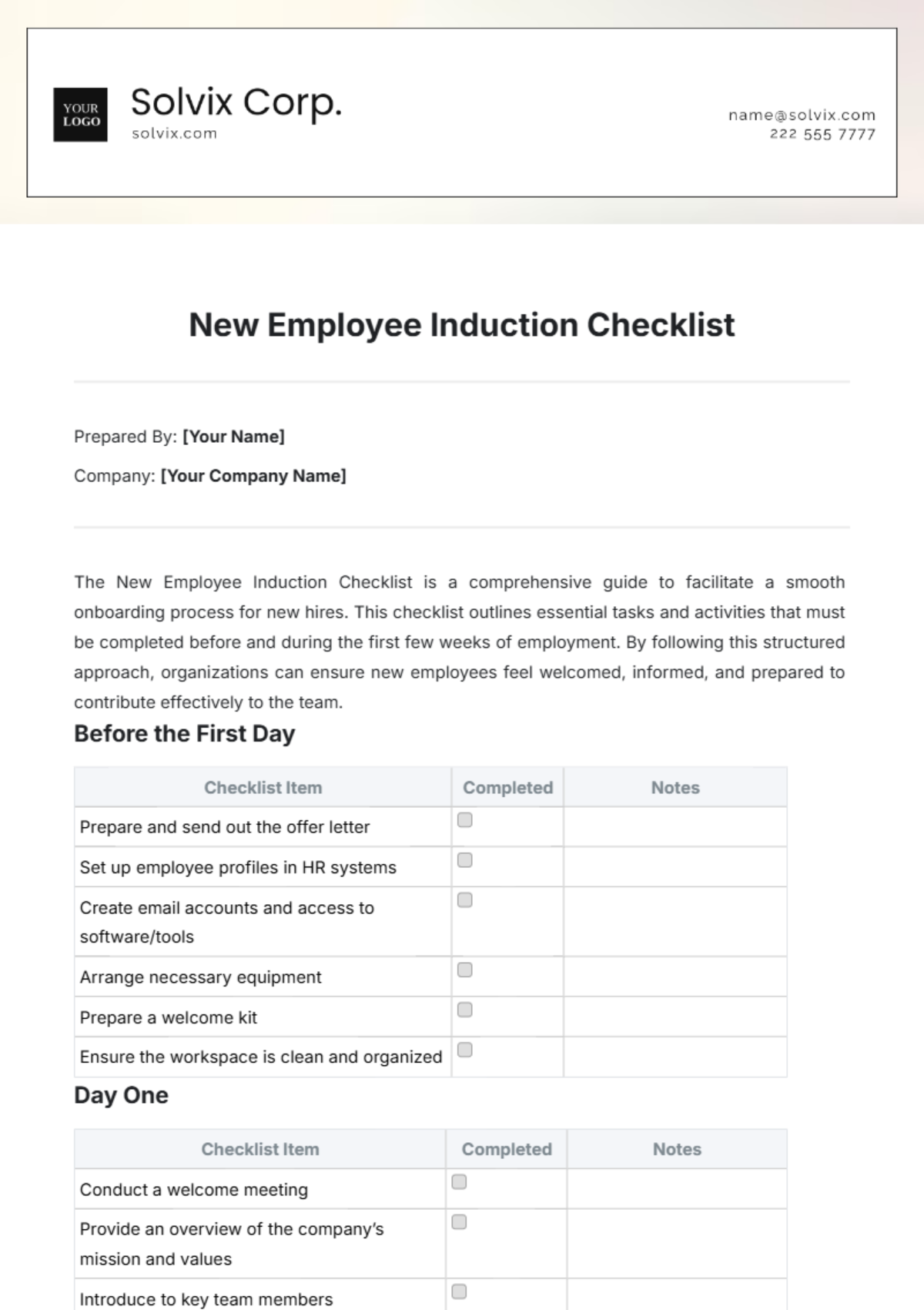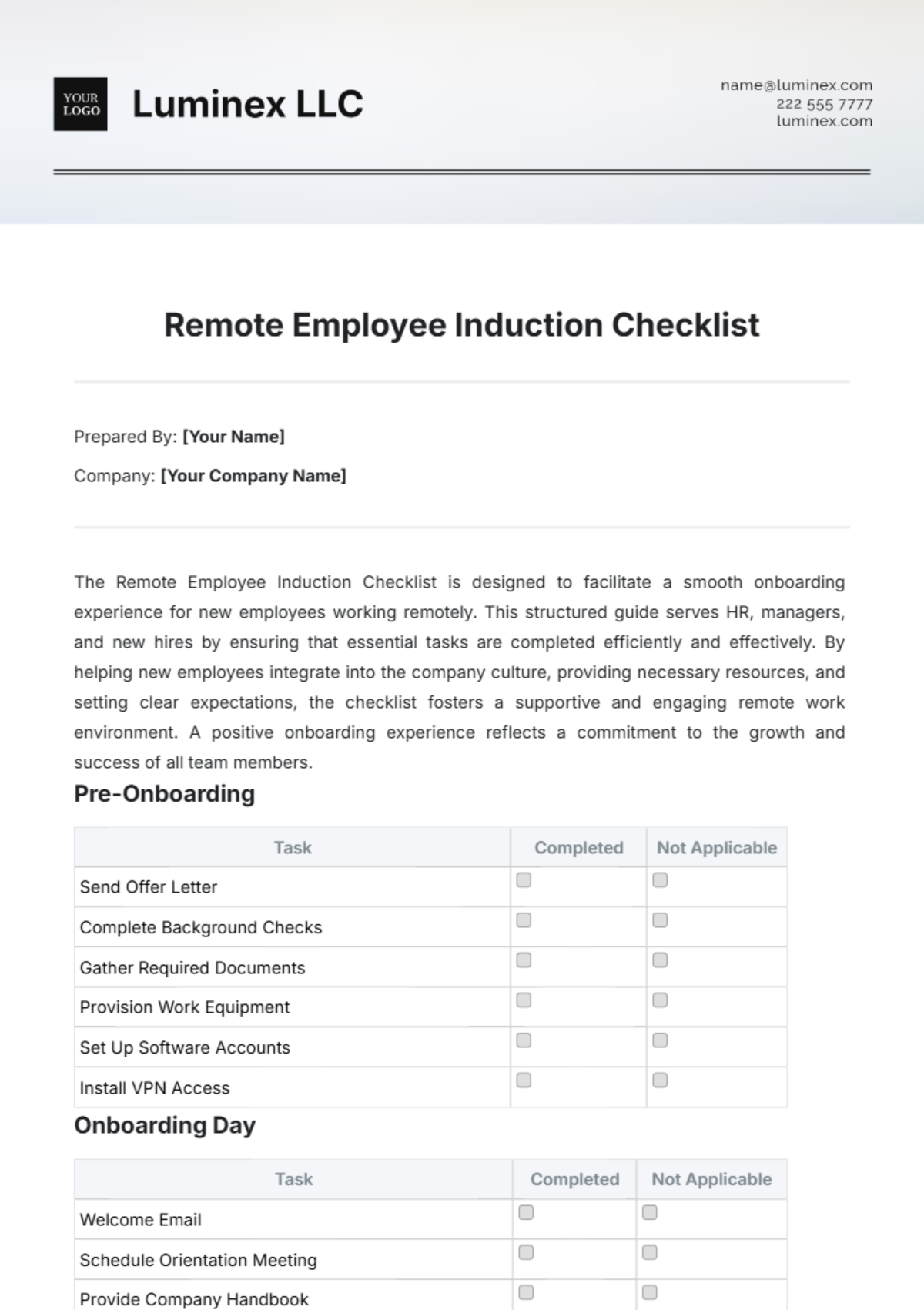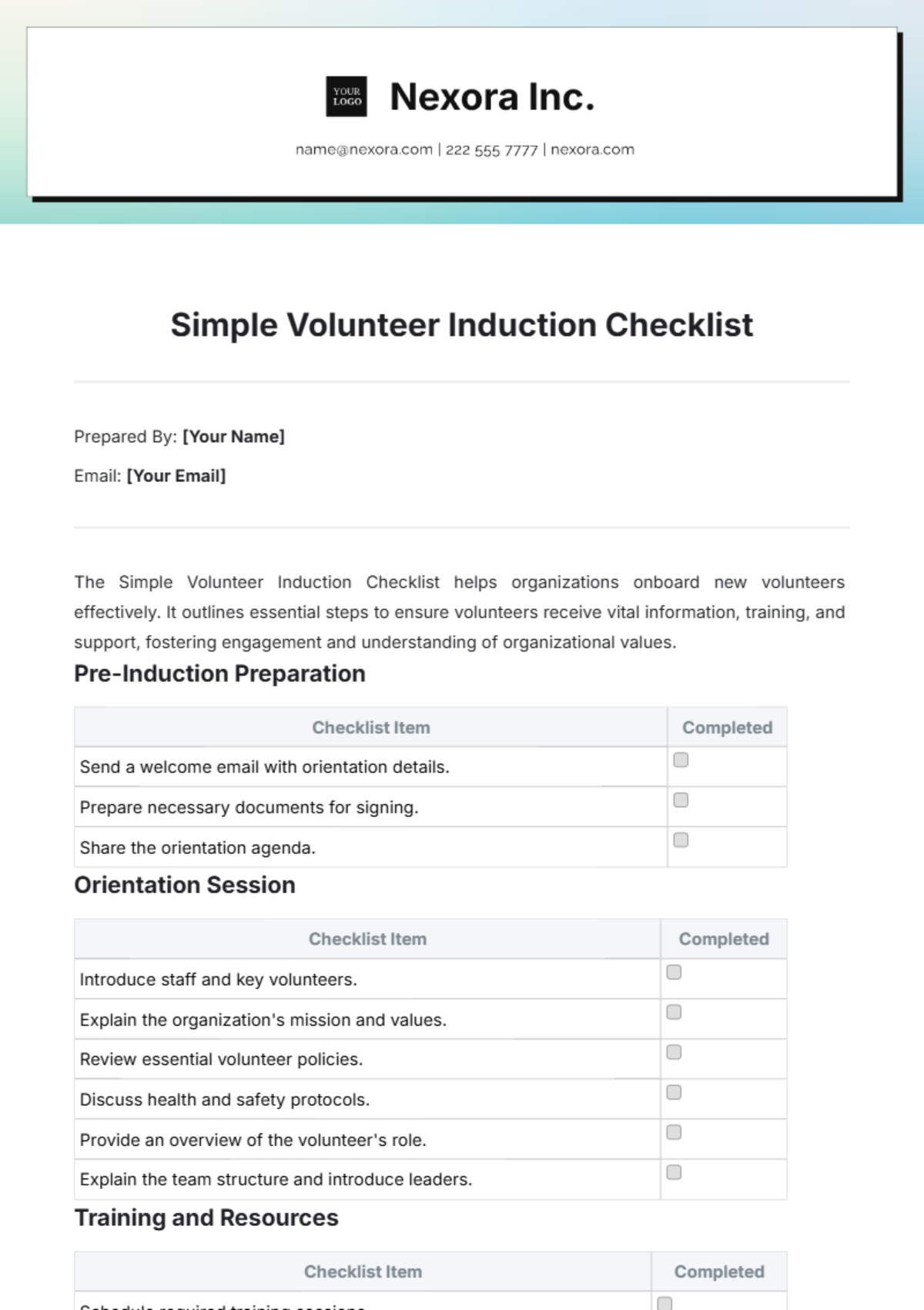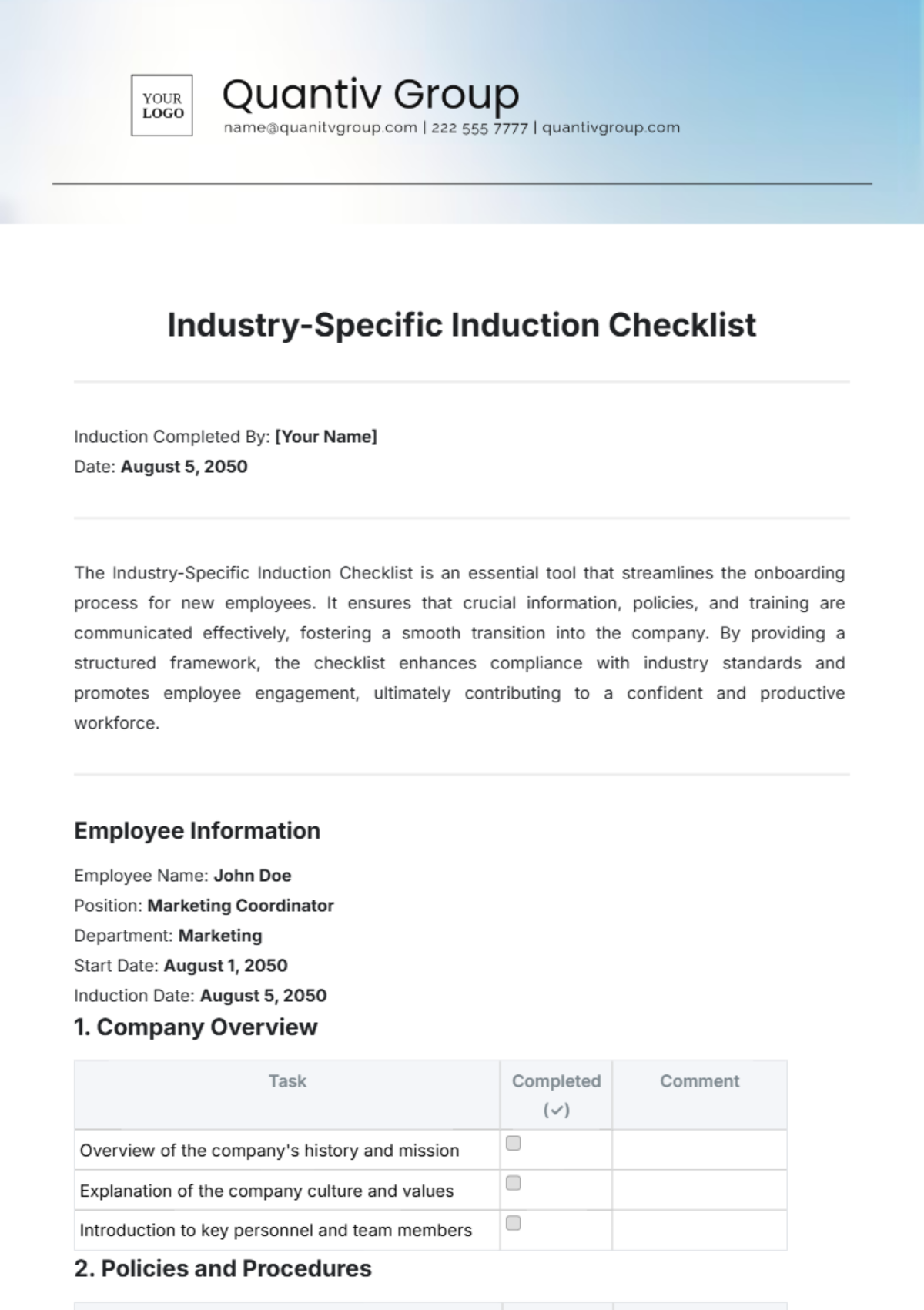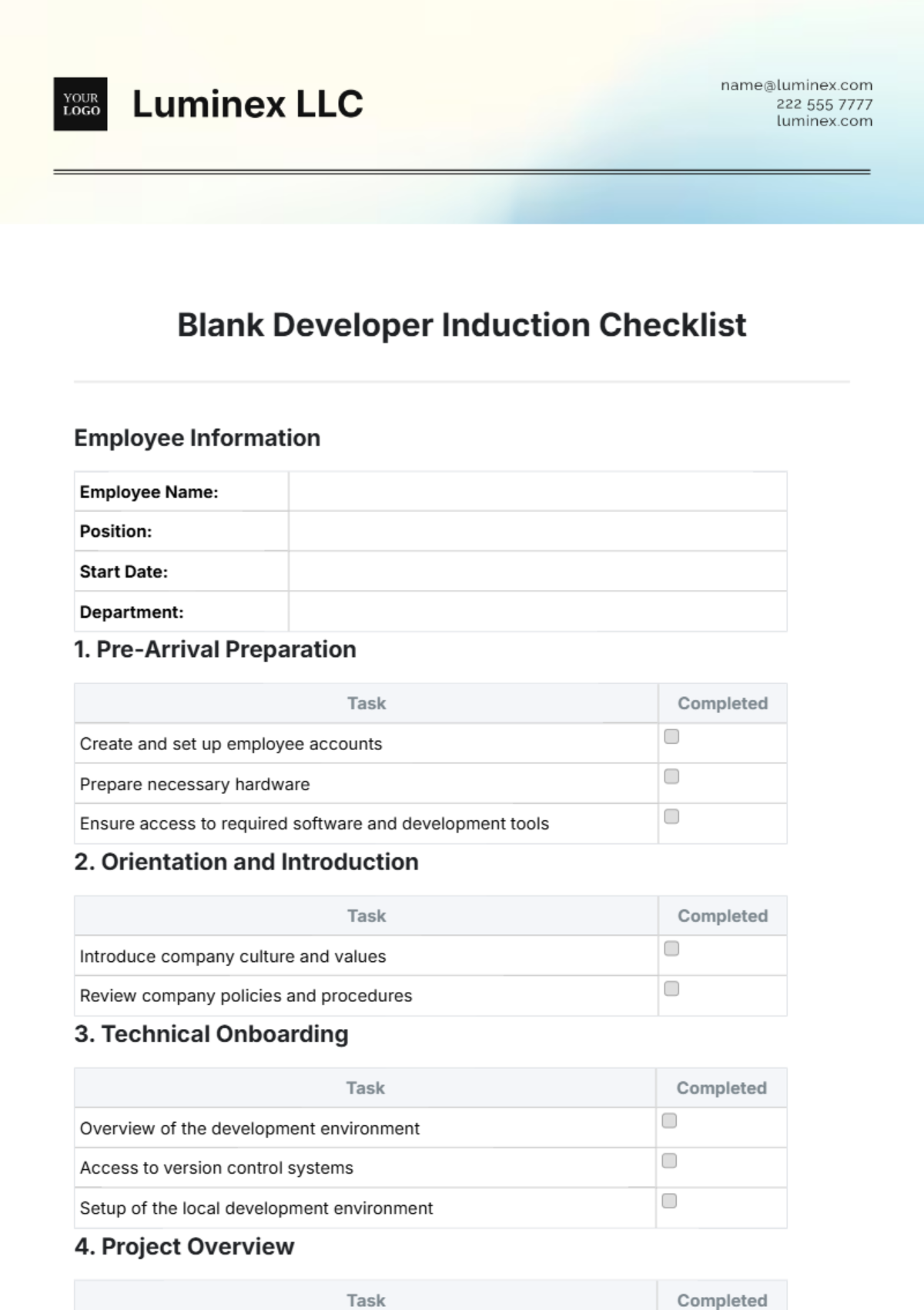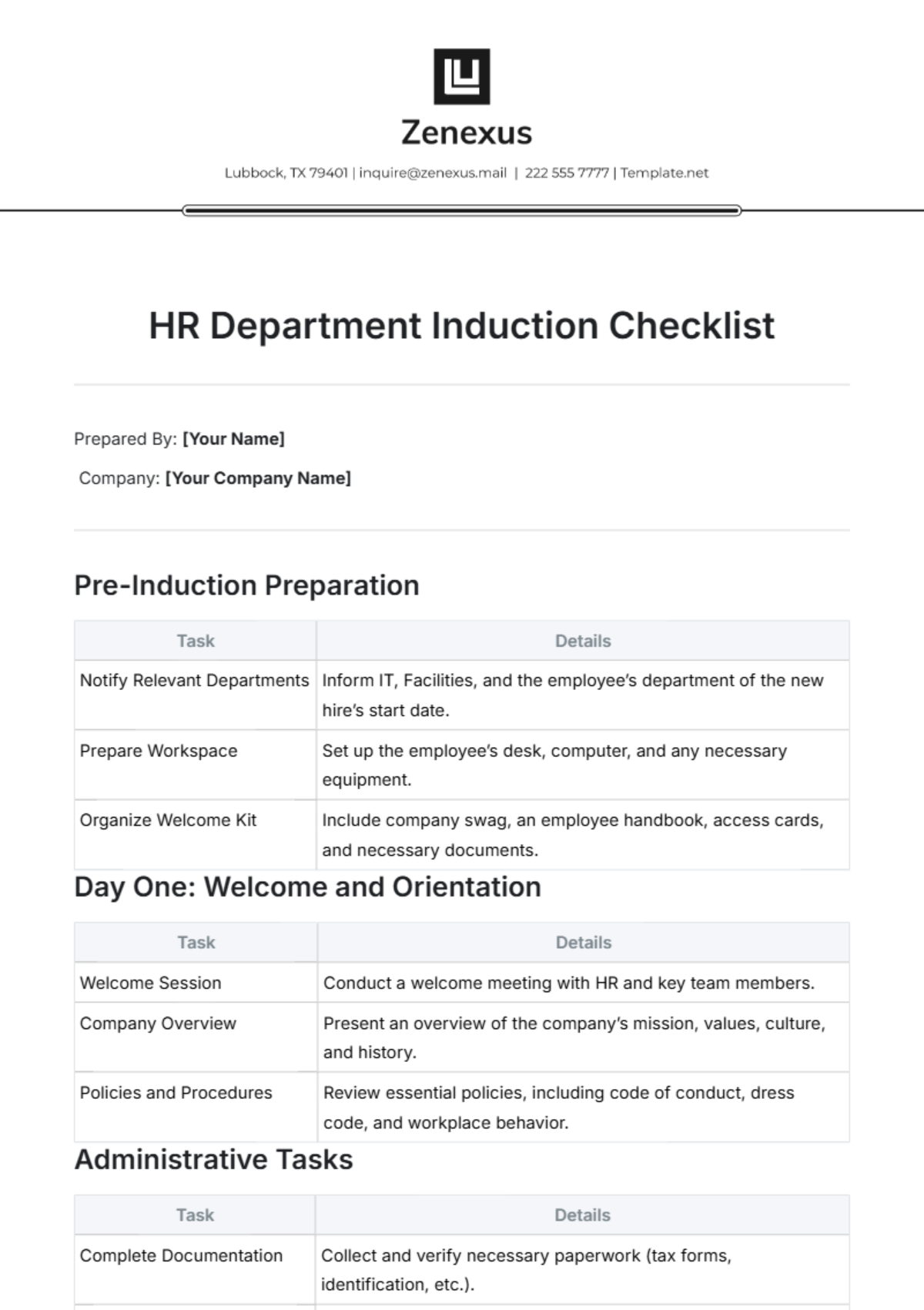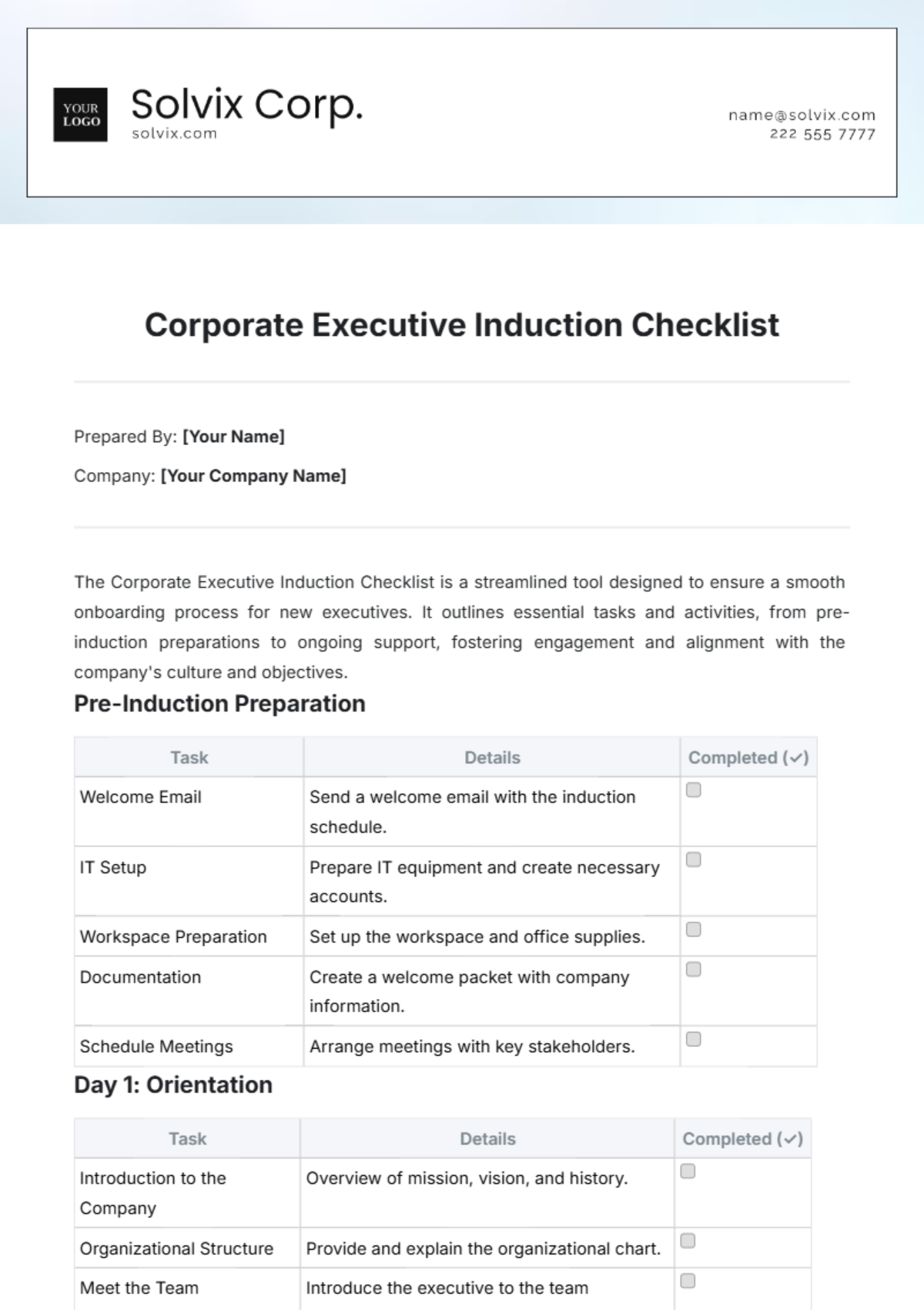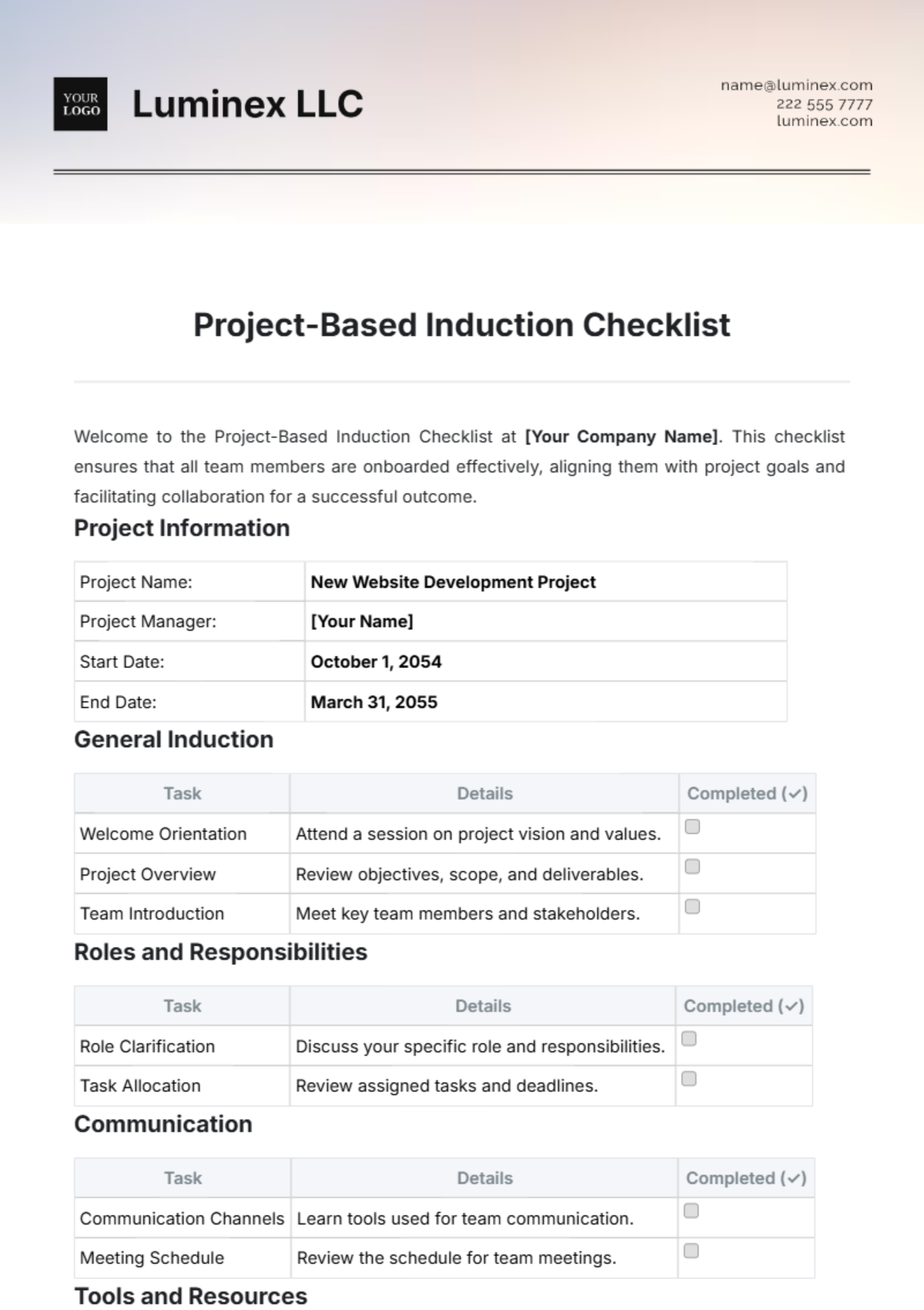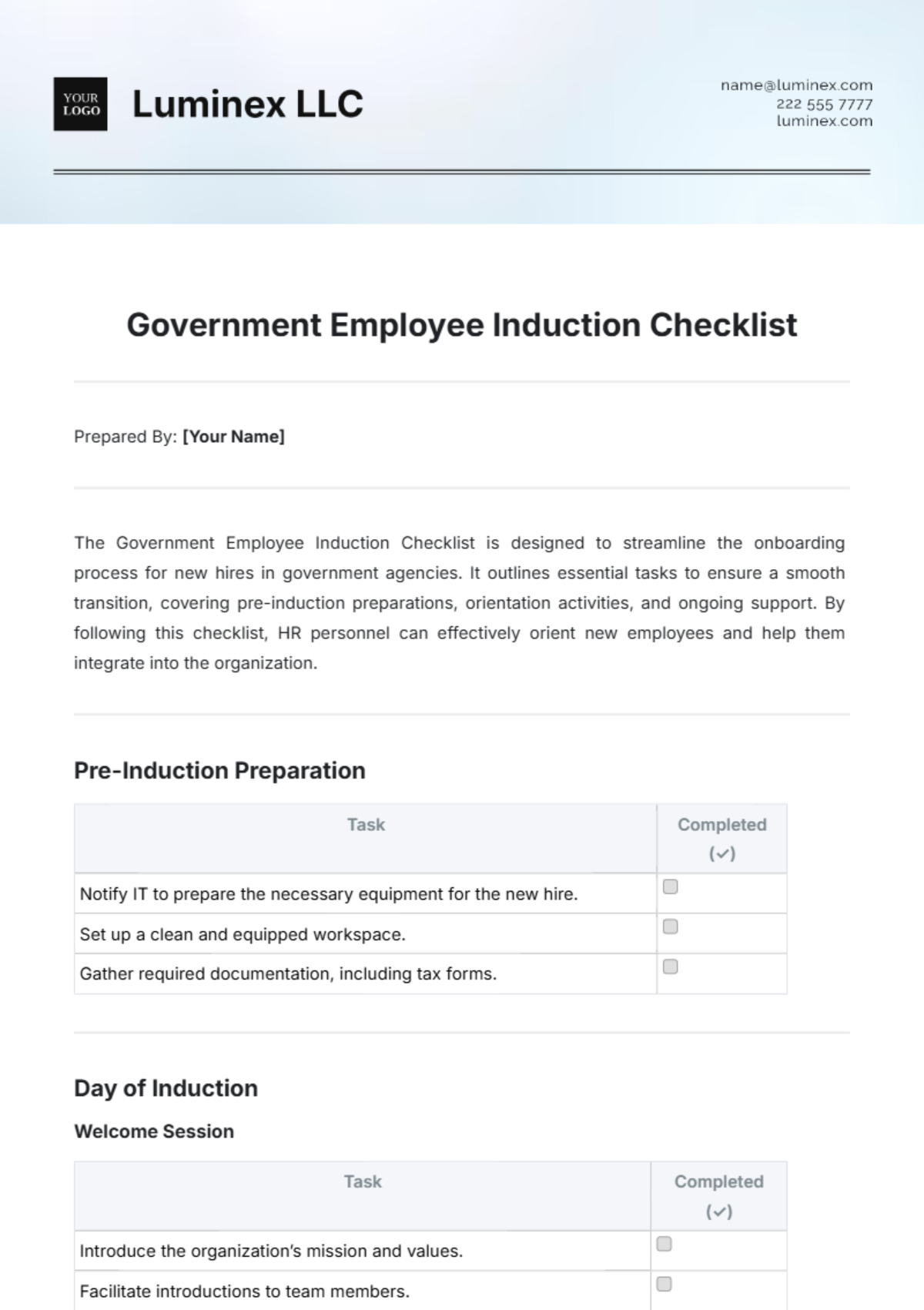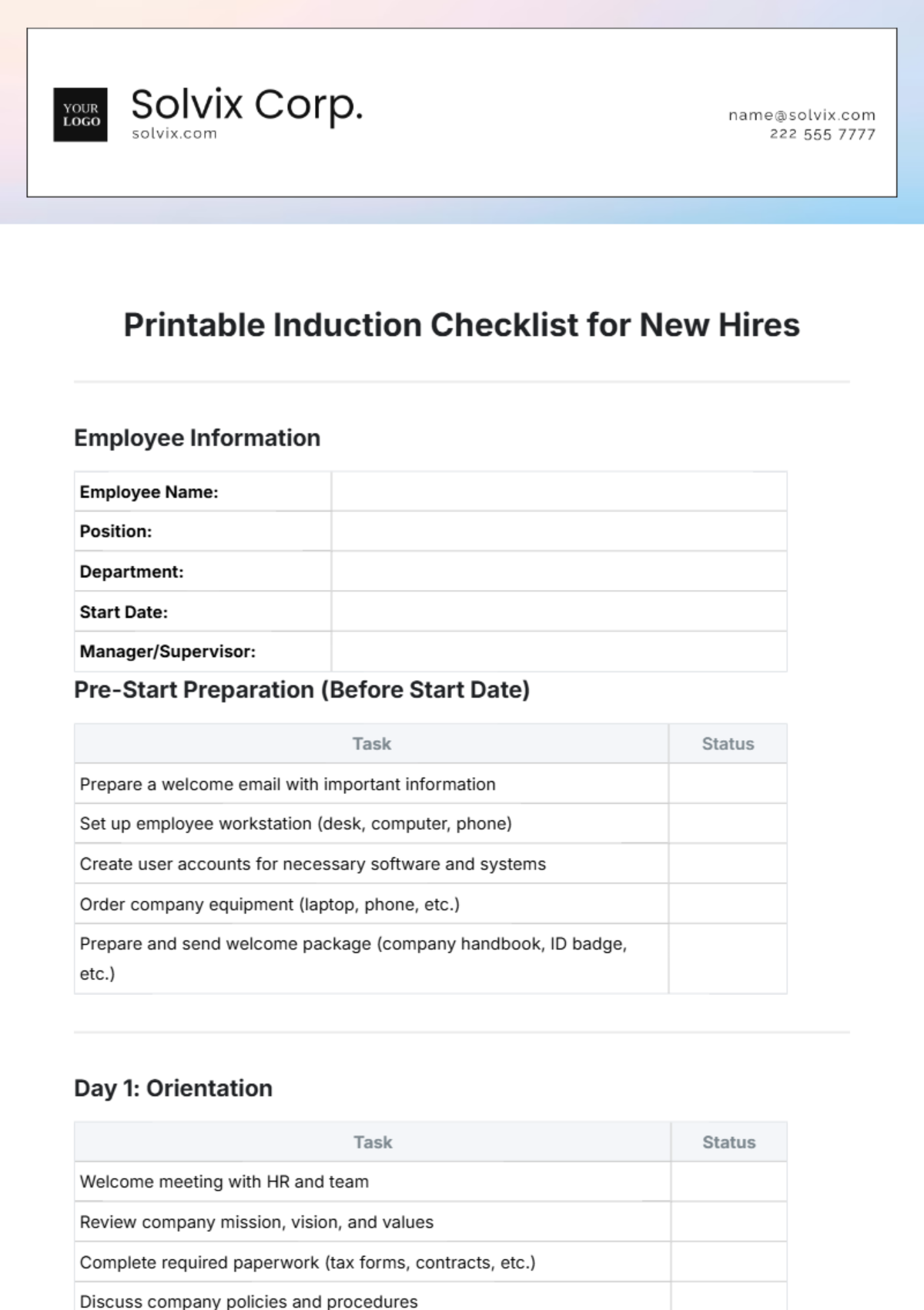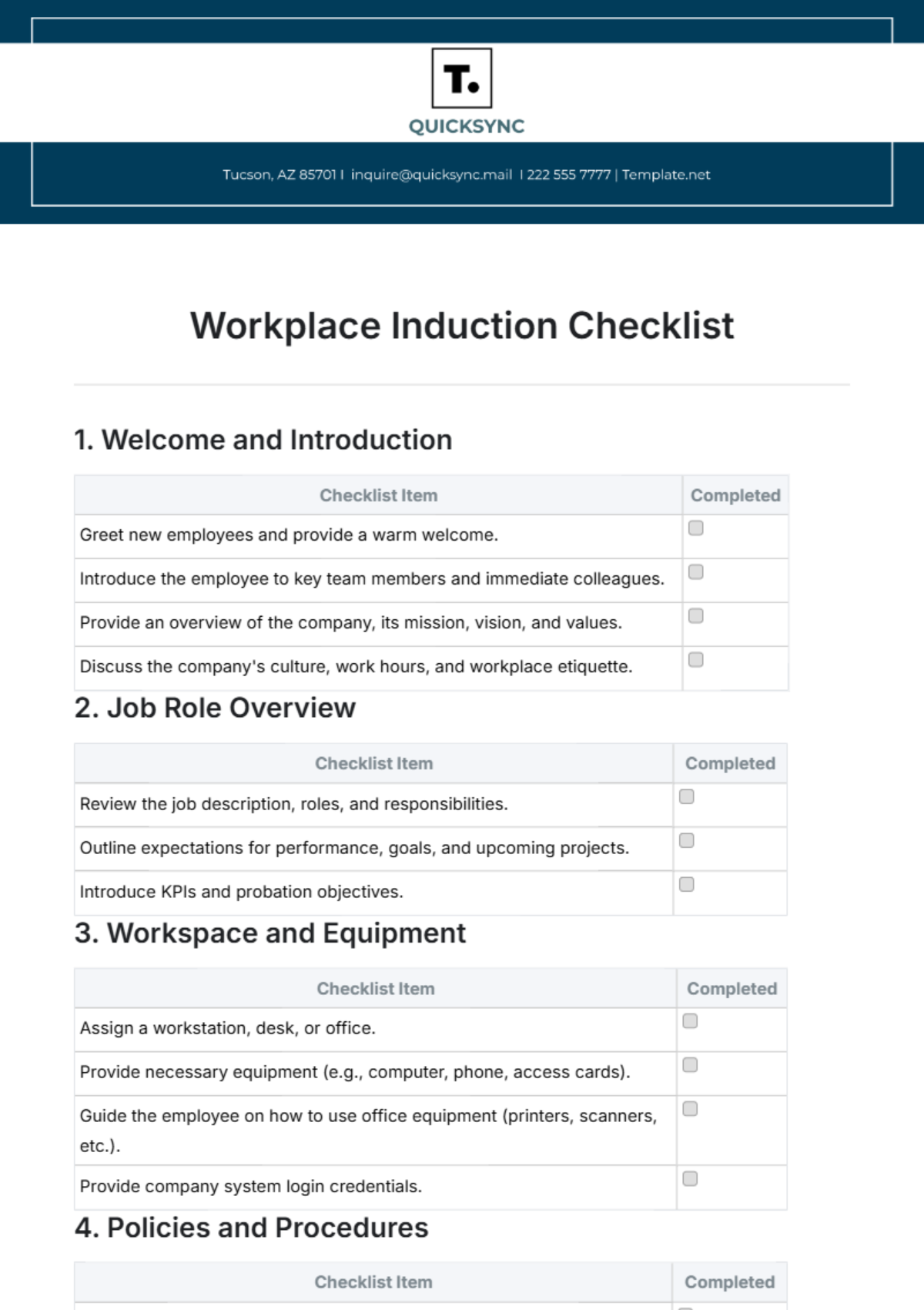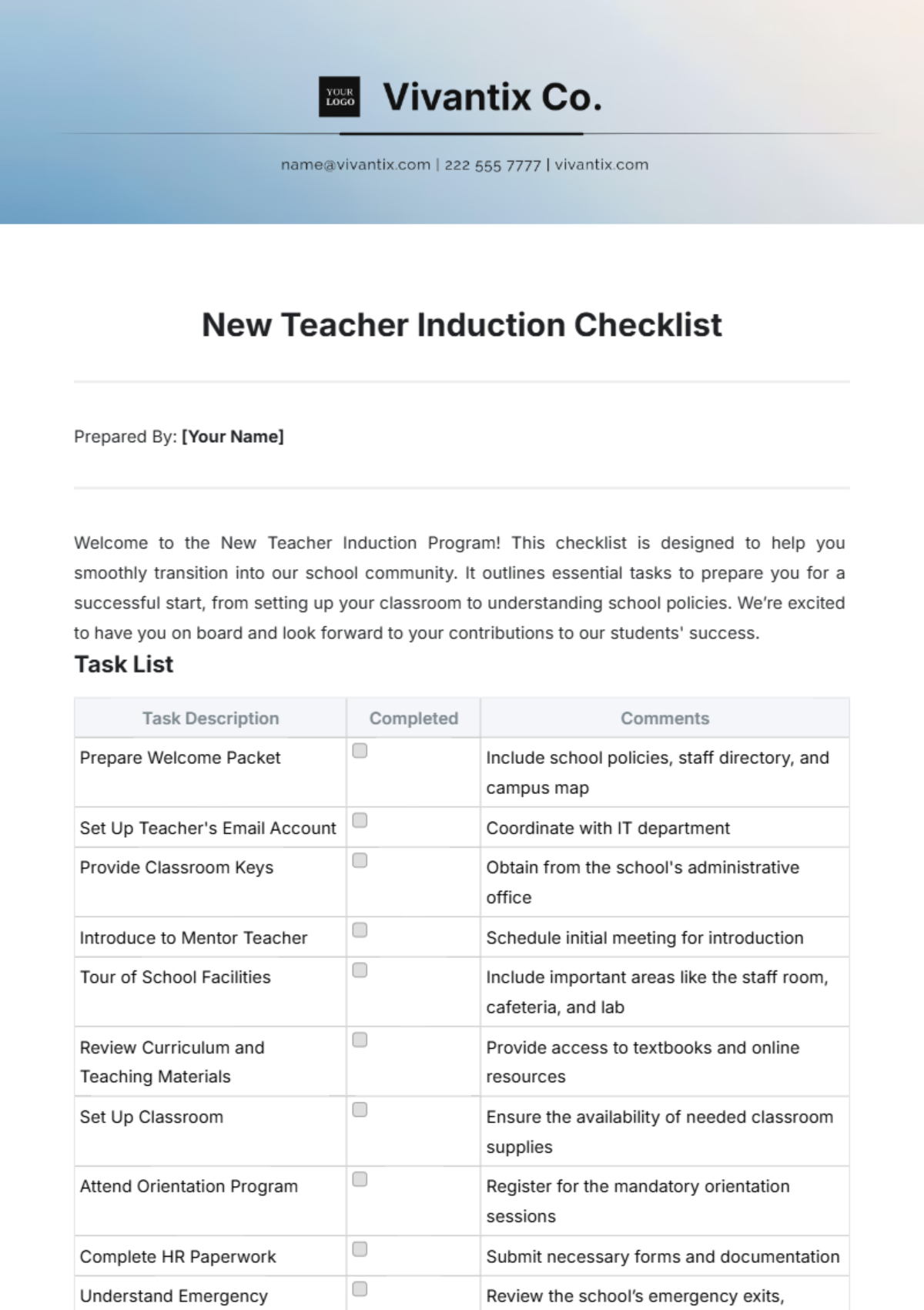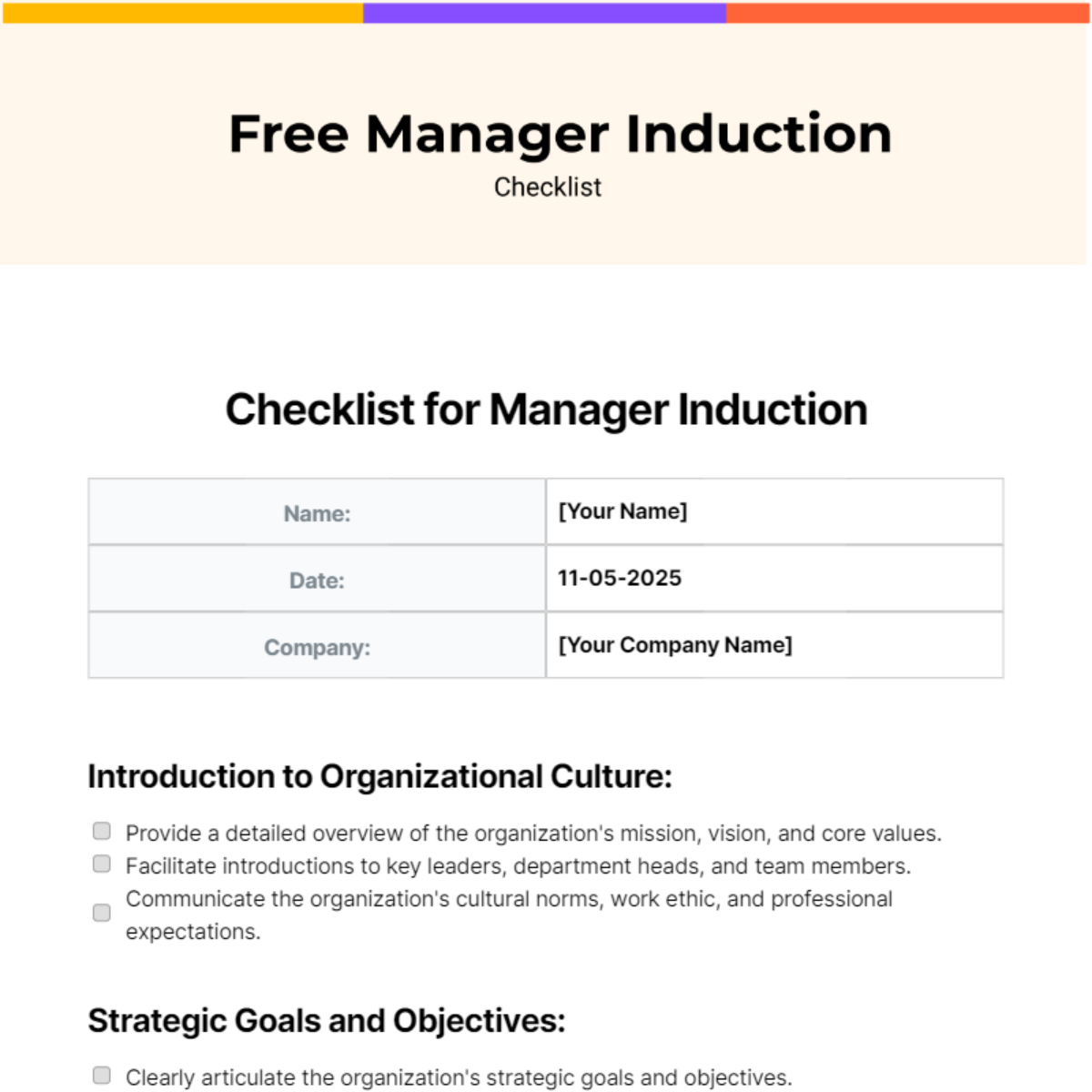Checklist for Manager Induction
Name: | [Your Name] |
|---|---|
Date: | 11-05-2025 |
Company: | [Your Company Name] |
Introduction to Organizational Culture:
Provide a detailed overview of the organization's mission, vision, and core values.
Facilitate introductions to key leaders, department heads, and team members.
Communicate the organization's cultural norms, work ethic, and professional expectations.
Strategic Goals and Objectives:
Clearly articulate the organization's strategic goals and objectives.
Discuss the manager's role in contributing to the achievement of these goals.
Provide context on the long-term plans and initiatives that impact the department.
Organizational Structure:
Present an organizational chart highlighting reporting lines and departmental structures.
Explain how different departments collaborate and contribute to overall success.
Clarify the roles and responsibilities of key executives and team leaders.
Policy and Procedure Overview:
Review and discuss organizational policies, procedures, and code of conduct.
Ensure the new manager understands compliance requirements and ethical standards.
Discuss protocols for handling sensitive issues, conflicts, and disciplinary actions.
Team Introduction and Dynamics:
Facilitate introductions between the new manager and team members.
Share insights into team dynamics, roles, and ongoing projects.
Encourage open communication and collaboration within the team.
Performance Expectations and KPIs:
Clearly define performance expectations and key performance indicators (KPIs).
Discuss the manager's individual and team-based performance goals.
Collaborate on setting measurable targets for the manager's initial period.
Training and Professional Development:
Communicate available training programs, resources, and professional development opportunities.
Discuss opportunities for skill enhancement and career advancement within the organization.
Encourage the manager to engage in continuous learning to stay updated in their field.
Technology and Systems Training:
Provide training on organizational systems, software, and communication tools.
Ensure the new manager is proficient in using technology relevant to their role.
Facilitate access to necessary databases and online platforms.
Communication Channels and Protocols:
Discuss communication channels within the organization, both formal and informal.
Highlight reporting protocols, meeting schedules, and team communication practices.
Foster a culture of transparent and effective communication.
Budgetary Overview:
Review the budgetary allocation and financial responsibilities associated with the manager's role.
Discuss any pending financial approvals, expenditures, or budgetary constraints.
Provide insights into cost-saving measures or areas for financial optimization.
Facilities and Resources:
Familiarize the new manager with office facilities, resources, and amenities.
Coordinate access to necessary tools, equipment, and office supplies.
Address any immediate needs or concerns related to the work environment.
Networking and Relationship Building:
Encourage the new manager to network with peers and industry professionals.
Facilitate introductions to relevant contacts within and outside the organization.
Discuss the importance of building professional relationships for long-term success.
Managerial Support and Mentoring:
Assign a mentor or a point of contact for ongoing support and guidance.
Provide information on managerial support systems and resources within the organization.
Encourage the new manager to seek advice and mentorship as needed.
